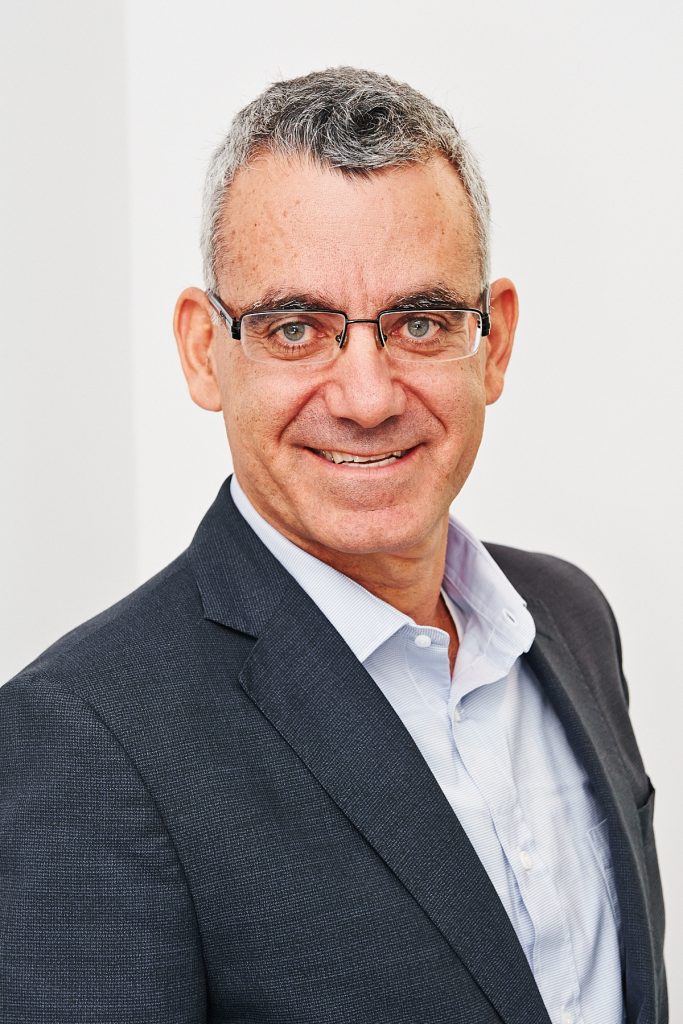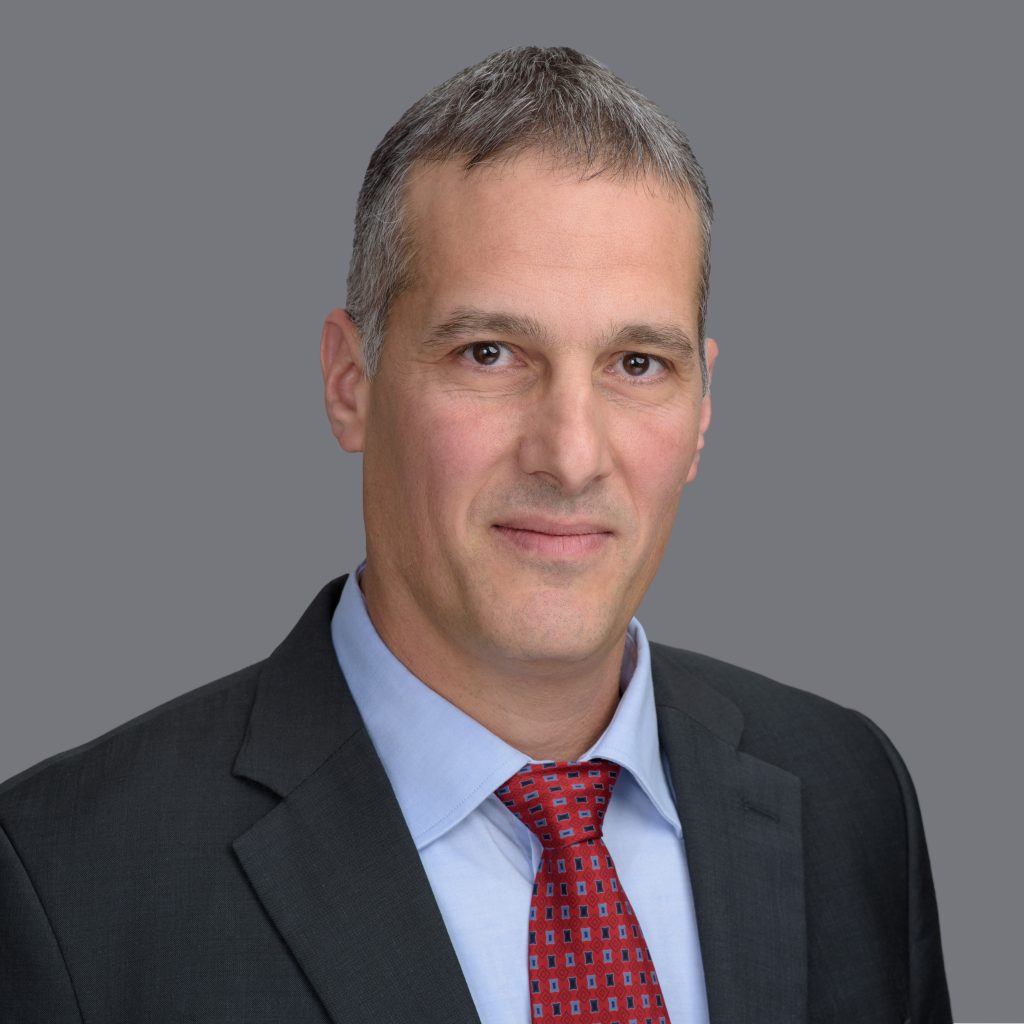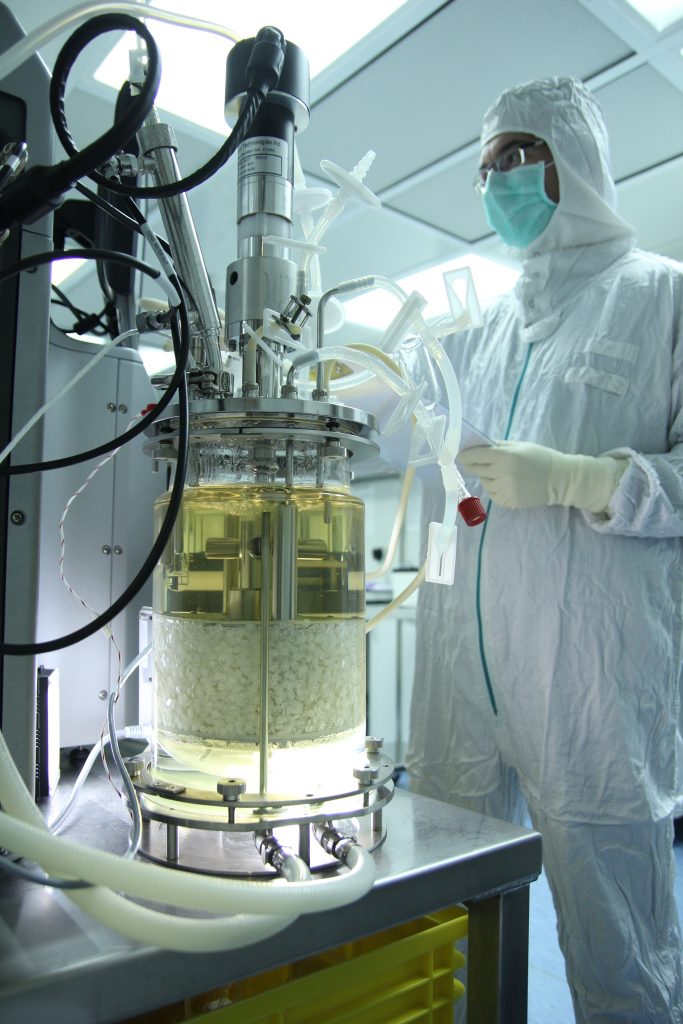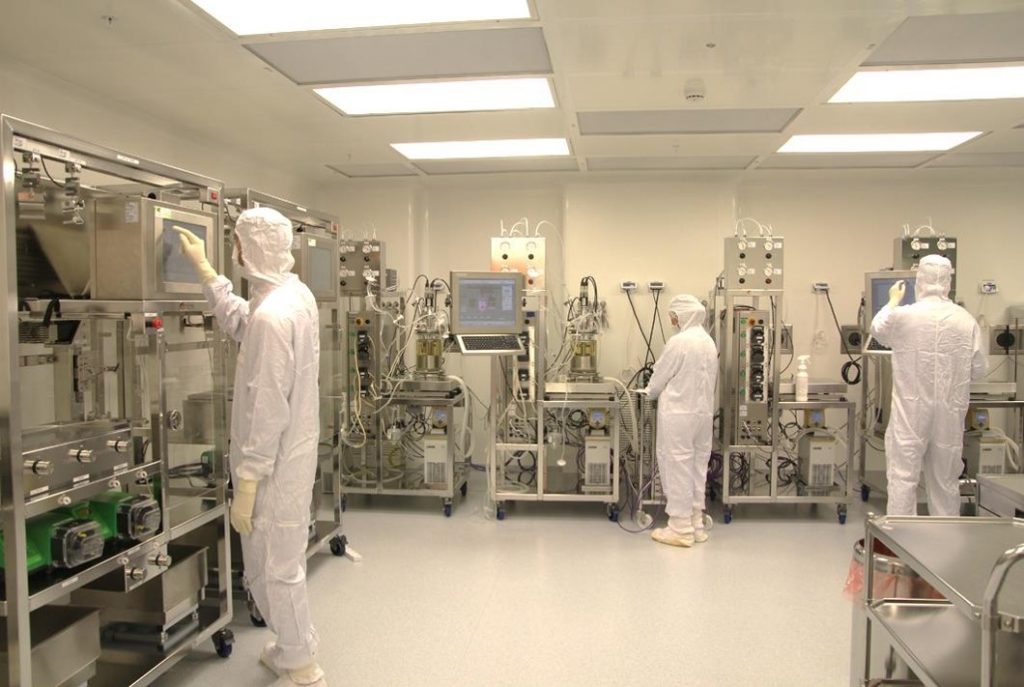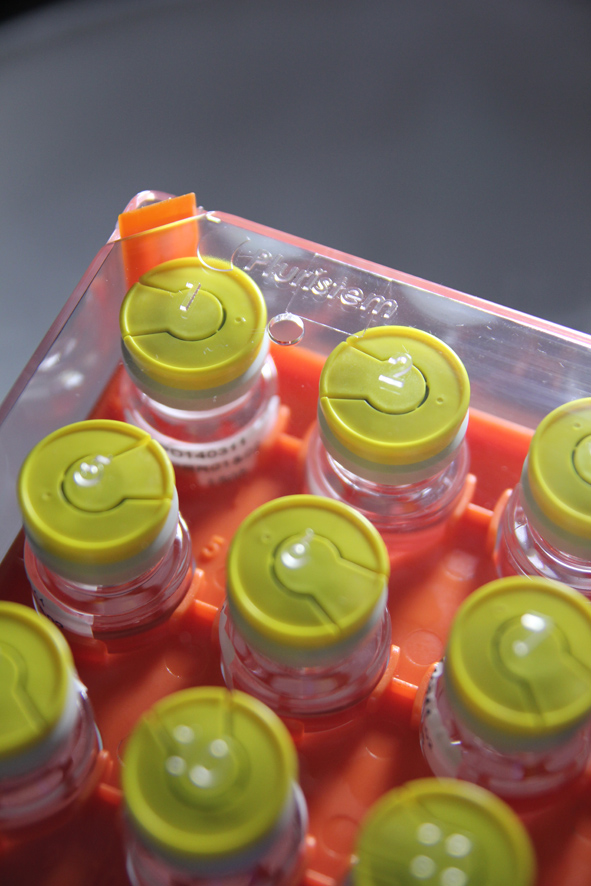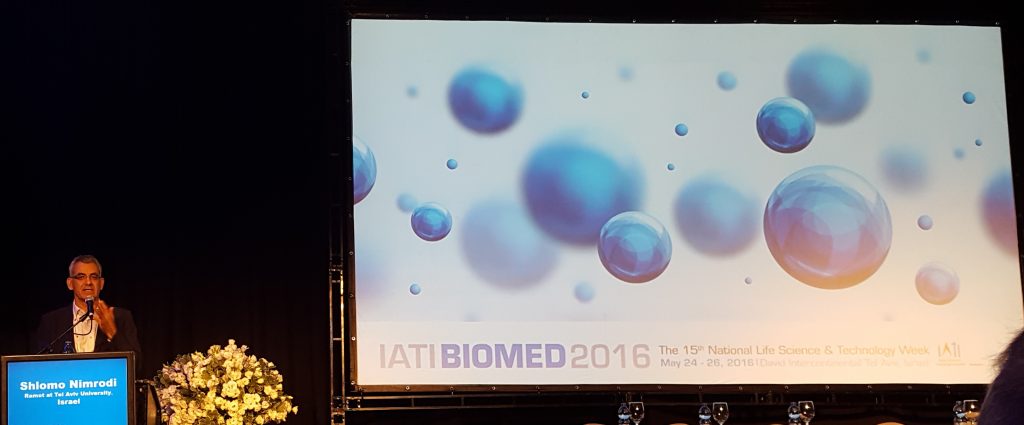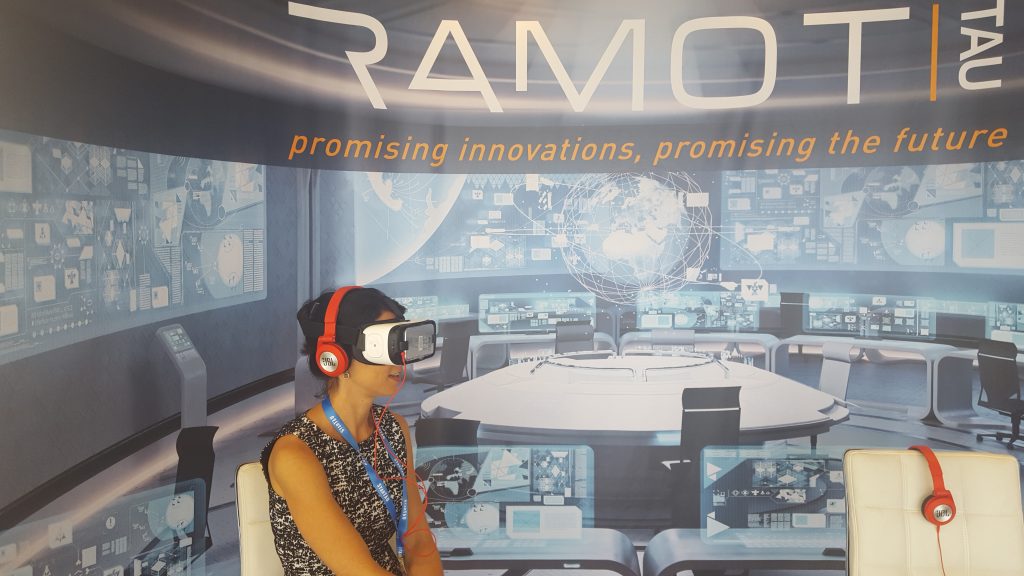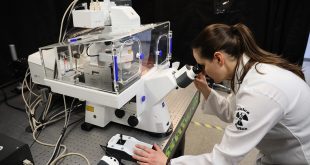By Hermione Wilson
If asked to describe the Israeli life science sector in one word, one would probably choose “entrepreneurial”.
In a country that is slightly smaller than the state of New Jersey, there are more than 1,000 life science start-ups. According to Teva, a major Israeli pharmaceutical company, Israel ranks first in the world for gross domestic expenditure on R&D and leads globally in venture capital (VC) investment per capita. Israel also has among the largest number of companies listed on the NASDAQ, behind the U.S. and China.
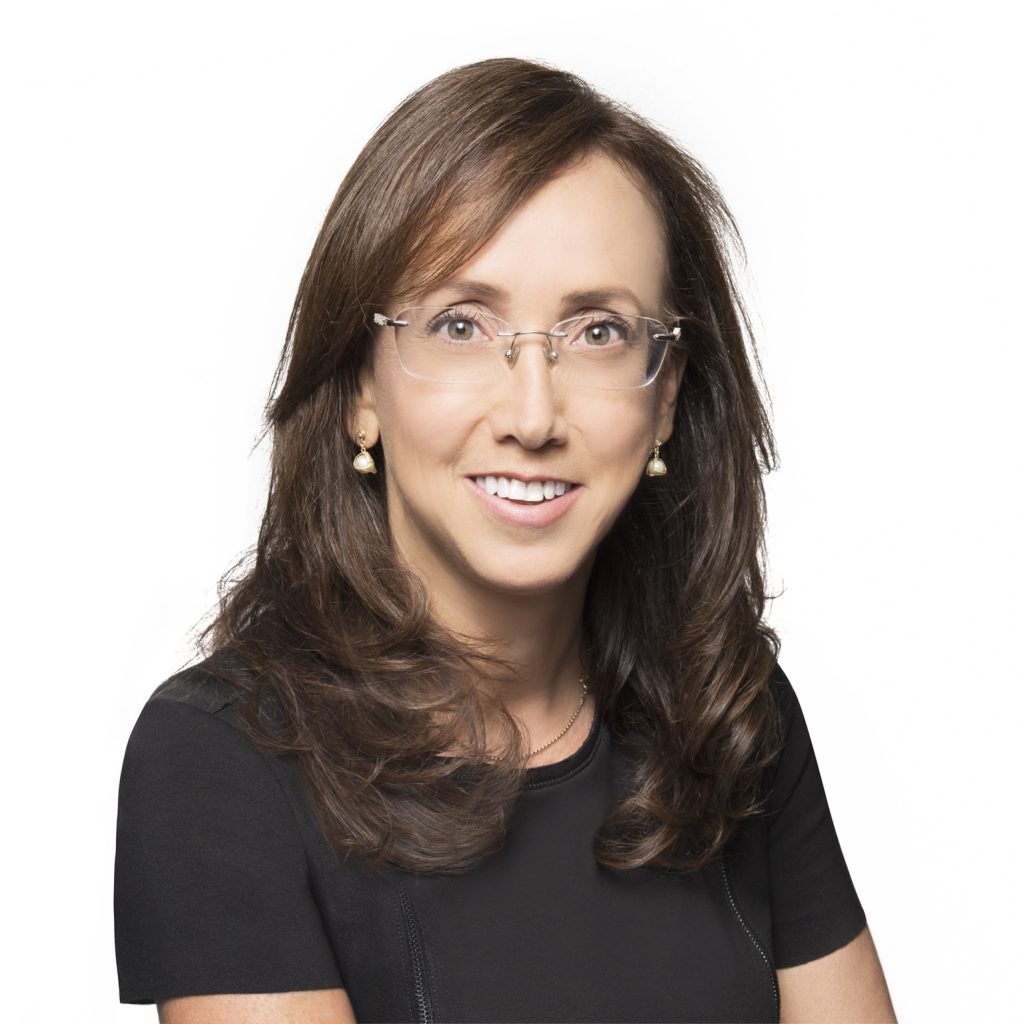
“Almost 50 per cent of the industrial export of Israel is derived from the technology [industry] – high-tech and life science,” says Karin Mayer Rubinstein, CEO of Israel Advanced Technology Industries (IATI), an umbrella organization for the technology and life science industries.
“There is a lot of innovation going on in Israel,” she says. There is a culture of entrepreneurship in Israel, she says. “[It’s a] culture of ‘It’s OK to fail.’”
Rubinstein relates that entrepreneurial spirit to Israel’s military culture, pointing to the fact that the Israel Defence Force’s medical unit was recently ranked number one in the world by the United Nations despite the country’s location in the turbulent Middle East.
“We are the only democracy in the Middle East and I always say that the constant threat looming [encourages] a higher awareness,” Rubinstein says, “We always think, how can we develop? How can we invent? How can we have more innovation?”
IATI has a mandate to expand and promote the technology and life science industries in Israel and worldwide. It works closely with the government, and supports life science start-ups and mature companies, as well as the technology transfer entities at academic institutions and hospitals.
“One of our main goals is to facilitate bringing multinational life science companies to Israel,” Rubinstein says. “We have 300 high-tech multinationals… but when we’re talking about life science multinationals, their R&D activities are not in Israel.” Multinationals in Israel mainly scout life science start-ups for opportunities for investment and collaboration, she says.
IATI has more than 700 member companies in Israel, including entrepreneurs, start-ups, incubators, accelerators, R&D centers, multinationals, VC funds, private investors, technology transfer organizations (TTOs), and service providers.
Pluristem is one of those members, an Israeli biotech company that is developing stem cell therapies derived from placental cells. The cells in placenta obtained after full delivery has the ability to treat a variety of conditions in patients, according to President and COO Yaky Yanay.
“The placenta contains very young and very potent cells in very high numbers,” Yanay says. “We were able to demonstrate that once we inject our cells into the patient’s body, we started to see that our cells were getting signals from the body… and based on these signals, the cells start to secrete a variety of different proteins… that are helping the body toward recovery.”

Pluristem currently has three indications in phase III clinical trials based on placental cells: an indication for critical limb ischemia (CLI); another for older patients who are prone to falls, for which Yanay says phase II studies showed promising results in terms of muscle force and volume; and a third for treating acute radiation syndrome in the event of a nuclear catastrophe. The U.S. government is stockpiling Pluristem’s cells in case of such an event. Pluristem is being funded by the U.S. government for that last indication, and the company is collaborating with the National Institutes of Health (NIH). Pluristem eventually wants to adapt a treatment to help cancer patients undergoing chemotherapy.
As a member of the IATI, Pluristem President Yaky Yanay says he sees it as his job to help promote the life science industry in Israel. “I believe that Israel in a very unique position… switching from being a start-up nation and my role is to help Israel become a biotech nation,” he says. “I think that we have a huge potential to provide a lot of good technology to the world in order to [increase] quality of life.”
“I’m seeing more and more companies trying to move to the next level… to become real biotech companies,” Yanay says. “Ten years ago none of the Israeli companies – other than Teva, for example – did phase III studies. But today my company alone is launching three phase III studies and I see a good number of my colleagues doing the same thing.”
There is certainly no speaking of the life science sector in Israel without discussing Teva’s role in the Israeli pharmaceutical sector. The company was founded in Jerusalem in 1901 as a small wholesale drug business that distributed imported medications to the local population and later began to produce them. Today, Teva is one of the top 10 pharmaceutical companies in the world, serving more than 200 million patients per year and holding a top three position in 40 of the markets in which it operates.
Teva is known for its speciality pharmaceuticals used to treat central nervous system conditions such as multiple sclerosis, pain, migraines, movement disorders and neurodegenerative diseases. It also has a strong commercial presence in the areas of respiratory, oncology and women’s health. Along with being a major player in Israel, the company is also strongly established in Canada. It has offices in Ontario and Quebec and more than 120 million Teva prescriptions are filled in Canada annually.
Bridging the gap between life science innovation at the academic and early-stage level and well-established life science companies are Israel’s commercialization companies, or TTOs. Ramot is one such company, based at the prestigious Tel Aviv University.
The company, which is a fully owned subsidiary of Tel Aviv University, is able offer from $50,000 to $1 million worth of support to entrepreneurs and academics at the university, as well as resources such as project management, IP consulting, business development. All this is made possible by the company’s own full profit fund, which it runs like a VC, as well as government support and the financial backing of multinationals Tata and Temasek, acting as anchor investors.
“Essentially, if you’re a scientist at Tel Aviv University, you have a continuum of support,” says Shlomo Nimrodi, CEO of Ramot. Not all assets make it to the $1 million investment, he says, but along the way Ramot decides to either license the asset to a multinational corporation or establish a start-up company in Israel. Nimrodi estimates they sign between 30 to 40 licensing deals (not all are life science related) about 25 to 30 per cent of those become Israeli start-ups.
“What’s unique about what we’re doing at Tel Aviv University, compared to other universities… we basically take very seriously our early stage innovations and we handpick those that have the most promising future,” Nimrodi says. “We invest within the boundaries of the campus of the university; we invest in enhancing the value of these assets.”
Among the assets Ramot has fostered are a blood test used to diagnose breast and lung cancer, a company that analyzes patients’ DNA sequence in order to advise them on lifestyle and health choices, and a technology that could see in vitro fertilization become an automated and more accurate process.
Recently, Ramot announced the establishment of an “Internet of Things” initiative to be based on the Tel Aviv University campus, which will undoubtedly have implications for health innovation, Nimrodi says.
“Just imagine if you were wearing a shirt and the shirt could continuously send a signal on your vital indicators like heart [rate], blood pressure, et cetera,” he says. “God forbid something goes wrong, your physician or loved ones will get a message saying, ‘Hey, better check on so-and-so.’”
The initiative will involve an investment fund comprised of five multinationals including GE, Microsoft, QualComm, Tata, and China’s HNA. Tel Aviv University and Pitango Veture Capital, Israel’s leading Venture Capital fund, are also supporting the fund. So far, the investors have raised $20 million, which will be followed up by in-kind contributions to entrepreneurs.
“It will allow us to actually offer Tel Aviv [University] students that are seeking to innovate… an investment of up to $1 million, but more importantly, we will offer them access to the multinationals so that can get to market much faster, which means lower risk and a higher probability of success,” Nimrodi says, adding that the initiative will be open to students outside of the university as well.
“Everybody is very opportunistic here and if they see a good idea, they jump on it,” says Tamir Gedo, CEO of BOL Pharma. The company supplies medical cannabis and active pharmaceutical ingredients derived from cannabis to companies and research organizations.
“The entrepreneurship gene here is very strong… the ideas are boundless,” Gedo says. “I couldn’t find some specialization that is leading the biotech sector [in Israel]. I would say actually it’s very fragmented. This is the beauty and at the same time the weakness of the Israeli system.”
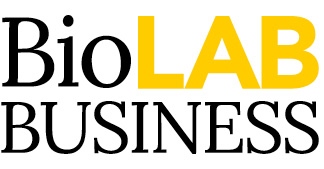 BioLab Business Magazine Together, we reach farther into the Canadian Science community
BioLab Business Magazine Together, we reach farther into the Canadian Science community
